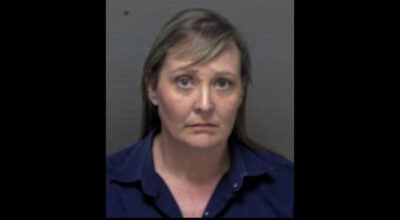Currituck Board of Commissioners gets report on unpaid taxes
Published 12:30 pm Wednesday, April 11, 2018
In keeping with general statutes, county tax administrator Tracy Sample presented a report on unpaid property taxes for 2017 during the Board of Commissioners’ early March meeting.
Sample said that as of February, there were about $1.4 million in unpaid taxes, which includes property taxes, personal property taxes and special district taxes. However, he also reported that in the past month, payments have been made, bringing the unpaid amount down to just under $800,000 and he expects additional payments will be made before the tax liens are advertised.
Of the 25,600 tax bills that were sent out, 97.3 percent were paid on time. There are also about 100 property owners on payment plans, 41 have had wages or tax refunds or bank accounts garnished. Sample also reported that most of the taxes will get paid from the 29 properties in foreclosure and 11 bankruptcies. In the past three years the county has sold 10 properties for back taxes.
Taxes are due Sept. 1 of each year, but are not considered past due and interest does not start accruing until January of the following year.
After 10 years, the county can no longer collect an overdue tax bill. So, from 2008, Sample said there is less than $6,000 left in unpaid taxes, most on older motor vehicles and from people who have moved.
The last collection rate was over 99 percent, which typically puts the county at least in the top 20 in the state, probably higher when compared to other small counties, Sample noted.
That collection rate is important to the budget process as the county must set its projected income from taxes in the new fiscal year at no higher than the prior year’s tax collection rate.
In other action, the board approved a resolution asking the governor to examine the membership of the North Carolina Marine Fisheries Commission. The resolution contends that the current Marine Fisheries Commission “…has exhibited a pattern of willfully disregarding stakeholder input, scientific expertise, and proper legal process and procedures in favor of interest group agendas…(and that) improperly-made decisions by the Commission threaten food security for the state and country, and jeopardize the economic vitality of coastal communities and the occupational viability of commercial fishing families and associated businesses…”
The board will “strongly” urge Gov. Roy Cooper to examine the current membership of the North Carolina Marine Fisheries Commission and if need be to make changes to ensure that the commission “equitably balances commercial and recreational fishing interests in a way that does not benefit private interests or bring harm to others.”
And on a related note, the board also approved a resolution opposing changing the definition of commercial fishing.
That resolution noted that the fisheries commission voted 5 to 4 to redefine commercial fishing and “…identified seven qualification components including a requirement that commercial license holders demonstrate a minimum level of participation by documenting 1,000 pounds of landings through the trip ticket program during any of the two out of five continuous calendar years…(and that) imposing an arbitrary level of participation would unfairly have a harsh and punitive effect on coastal communities hit by hurricanes and other natural disasters where many commercial license holders, whose income generating season may have been entirely wiped out by a storm, are forced to temporarily divert their time and talents to other business enterprises…”
The resolution also notes that the new criteria “…would create a requirement that all individuals wanting to engage in commercial fishing must first complete a three-year apprenticeship or graduate from a community college commercial fishing program before being eligible to purchase a standard commercial fishing license (which would) unfairly penalize those with an entrepreneurial spirit willing to invest their skills and resources in the commercial fishing industry (and is) counterproductive to economic development principles and would only serve to thwart individuals wanting to pursue their dream of creating a small business in our coastal communities…”
The resolution also points out that in 2010 a Fishing License Review Taskforce found there was no need to modify the definition of commercial fishing and urged the General Assembly to take no action in that regard.
The board also approved a resolution calling for the design-build approach to the county’s new public safety center. Design-build is a project construction option that has the building architect and contractor working together from the start, which has worked well for the county on its last two construction projects that came in under budget.
In presenting the resolution, county manager Dan Scanlon noted that having both services on a single contract also shortens the project schedule and reduces the number of change orders.
Currently, the county’s public safety services are in offices throughout the county, and the Emergency Operations Center is set up when needed in the public meeting room in the county’s historic courthouse. Along with having a central location for public safety and a permanent and upgraded EOC, the building will also house the College of the Albemarle’s Public Safety Program.
The building, that will be housed at the county’s complex in Maple, is planned to be ready prior to the start of the 2020 hurricane season.
Commissioner Mike Payment asked about the use of local contractors and businesses for the project.
Scanlon noted that there is no requirement in the design-build contract to use local business, but the project will be advertised for bids from all that qualify.
The board also approved an amendment to the unified development ordinance that allows chicken coups as an accessory use to a single family dwelling in the general business zone. Planning director Laurie LoCicero said housing for chickens is already allowed as an accessory use to single family dwellings in residential zones and the amendment simply gives houses in the GB zone the same opportunity. But, she added, restrictive covenants prohibiting chickens in certain subdivisions still apply.
LoCicero reported there are 2,400 parcels zoned GB in the county, and of those 700 have residences.
The ordinance also limits the number of chickens to eight, no roosters, no on-site slaughtering, the coup must be covered and be no closer than 25 feet to any residential structure or lot line, and the enclosure must be fenced.
The restrictions do not apply to chickens in the agriculture zone.
In more action, the board approved a $212,000 budget transfer from salaries to overtime due to job vacancies and additional staffing for emergency medical services.
Board chairman Bobby Hanig and commissioner Marion Gilbert reported on attending the dedication of the county’s first Habitat for Humanity house, one of 38 homes completed in the state where the commitment is for one Habitat home in every county.
Chairman Hanig commented that it was one of the coolest things he has done and the volunteer outreach was amazing.
Gilbert commended the work Moyock Women’s Club contributed to the house and the financial support provided by the State Employees Credit Union.
Chairman Hanig also reported on attending an Albemarle Hopeline event and commended the work of that organization, adding that persons in need of Hopeline’s help are not alone and to contact that agency (in Currituck, 453-8116).
Commissioner Paul Beaumont reported that he attended the Board of Education’s meeting where student board member Jenna Akers gave a presentation on improving school safety with a device that attaches to the classroom door. Beaumont said Akers worked with Chief Deputy Matt Beickert on the presentation and commended both.
The county manager reported that, in keeping with state guidelines, that as of July 1 white goods, such as refrigerators, freezers and air conditioning units will no longer be accepted at the convenience centers. Those items will have to be taken to the transfer station in Maple for disposal.
Tom Roddy was appointed as alternate to the Board of Adjustment.
The commissioners also met as the county’s Tourism Development Authority to approve a $9,782 budget amendment for repairs/replacement of the HVAC system at the Whalehead Club.
Giving the invocation at the start of the meeting was Rev. Frank Custer, pastor of Mt. Zion United Methodist Church, followed by the Pledge of Allegiance.





